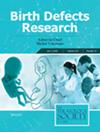Bisphenol A (BPA) is a ubiquitous industrial compound found in an enormous variety of consumer goods such as plastics, epoxy resins, and thermal paper. Despite its widespread usage, the effects of BPA on the risk and development of metabolic syndrome are not fully understood. Prenatal exposure to BPA has been shown to disrupt the development of offspring's metabolically active tissues and increase their susceptibility to the adverse consequences of a trans-fat diet (TFD).
In this experiment, pregnant rats (n = 18) were randomly separated into three groups. These groups were treated from pregnancy day (PD) 2 to PD 21. Subsequently, the male offspring of these rats were provided either a normal-diet (ND) or a TFD from 3rd postnatal week (PNW) to 14th PNW. Then, protein expression of PPAR-γ and global DNA methylation were assessed in the adult rat offspring that were exposed to in utero BPA and subjected to postnatal TFD intake.
The study findings have shown that there was no association between prenatal exposure to BPA and/or TFD consumption and PPAR-γ protein expression within all the study groups in the liver tissue. On the other hand, changes at the molecular level, as reflected by the global DNA hypermethylation induced by prenatal BPA and postnatal TFD intake in adult male SD rat offspring (PNW 14).
This study underscores the potential impact of prenatal BPA exposure and postnatal TFD intake on epigenetic regulation, as evidenced by global DNA hypermethylation, despite no observable changes in PPAR-γ protein expression. These findings suggest that early-life environmental exposures may predispose individuals to metabolic disruptions, including diabetes and obesity, in adulthood or future generations.


